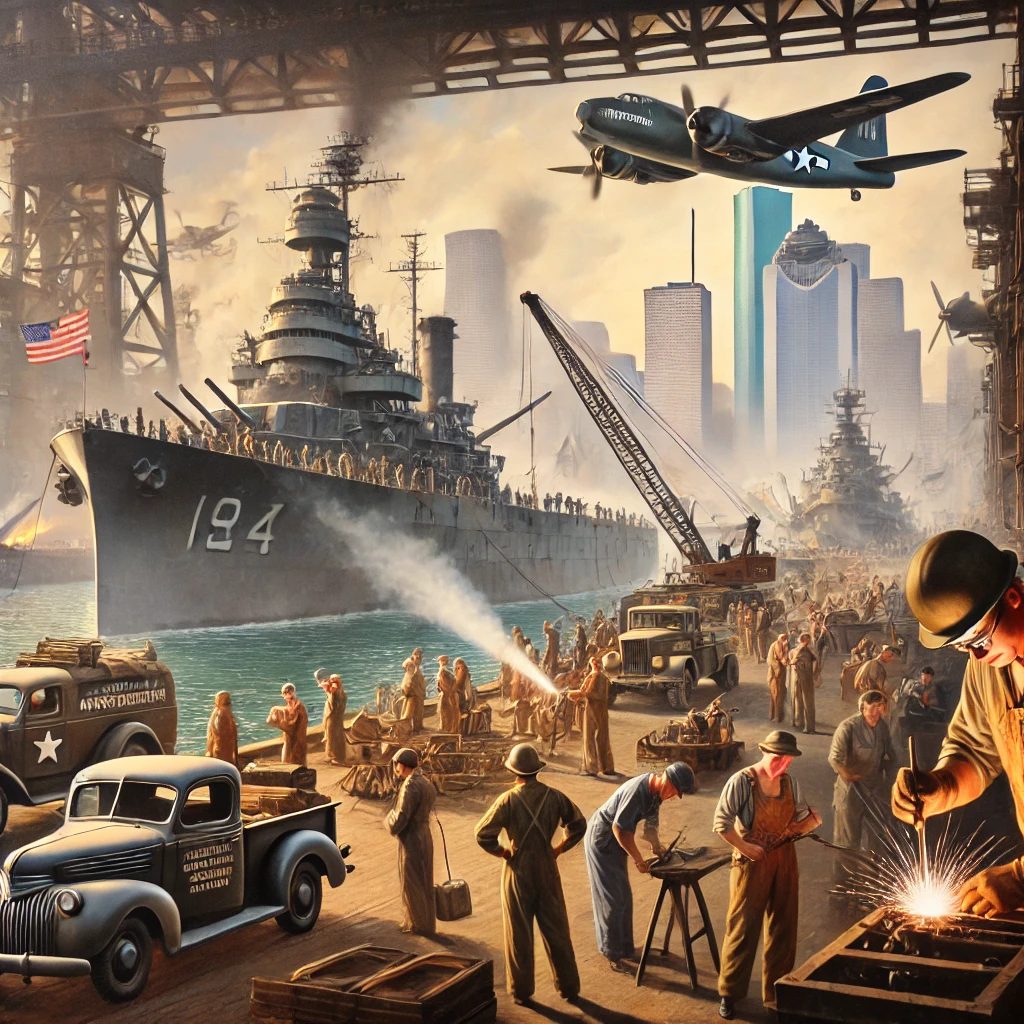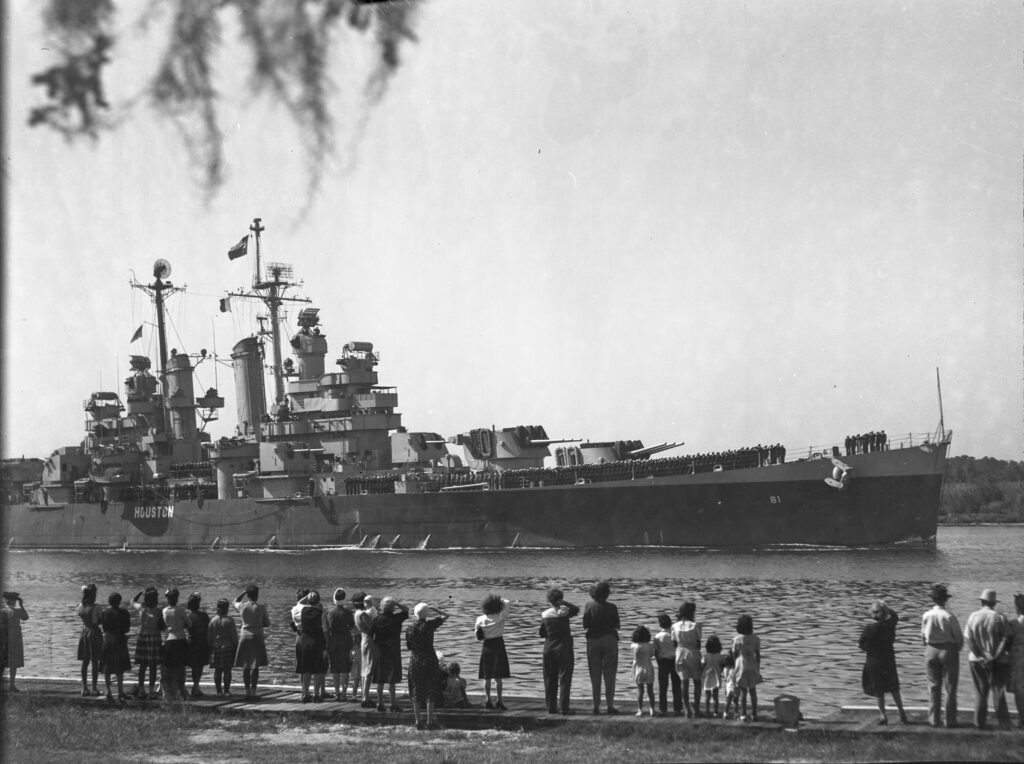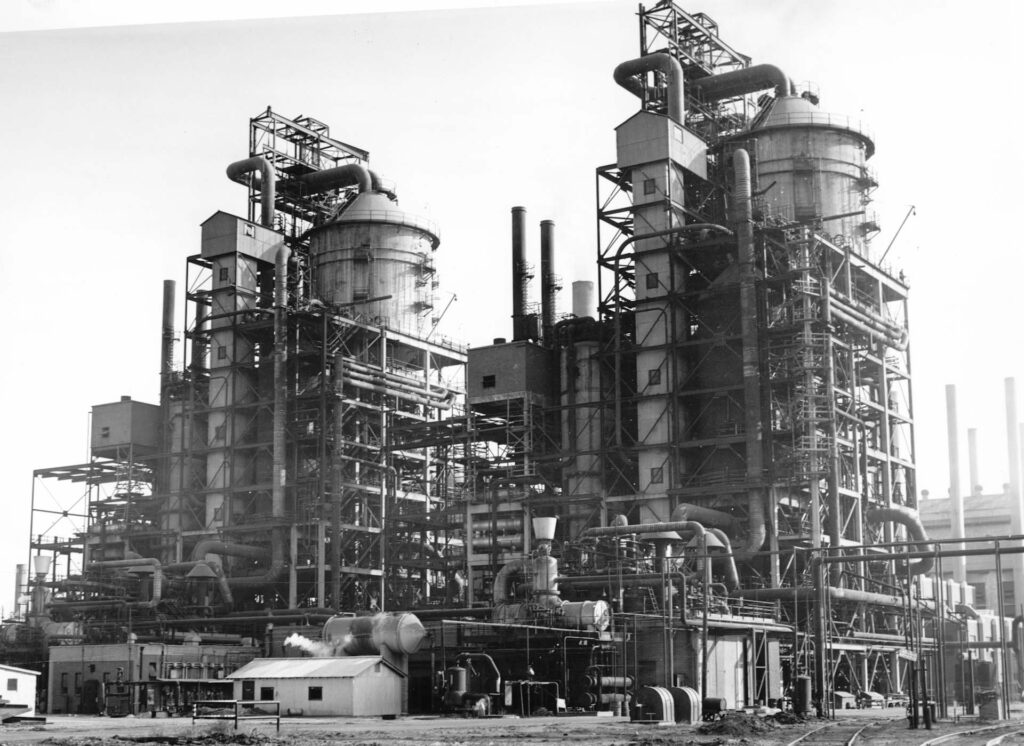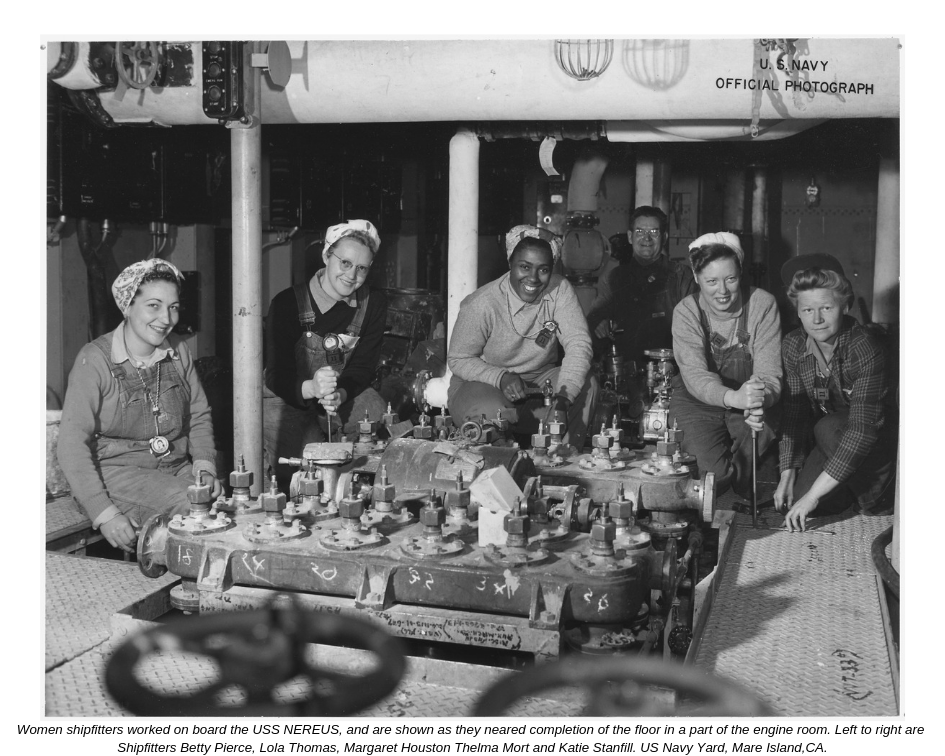
Houston played a pivotal role in World War II, with its industries and shipyards driving efforts on the home front. The city became a critical center for shipbuilding, energy production, and manufacturing. At the same time, Houstonians mobilized to support the war effort through volunteerism and resource conservation, leaving a lasting legacy of resilience and patriotism.
Shipbuilding at the Houston Ship Channel: A Crucial Contribution
The Houston Ship Channel became a hub for shipbuilding during the war. The demand for Liberty ships—cargo vessels essential for transporting troops and supplies—created thousands of jobs. Shipyards along the channel worked around the clock, constructing ships that played a vital role in winning the war.

Houston’s shipbuilders, both men and women, exemplified the workforce shift that took place across the nation. Women, often referred to as “Rosie the Riveters,” took on roles in welding, assembly, and maintenance, breaking traditional gender norms and proving their capabilities in industrial labor.

Energy Production: Fueling the War Effort
As a leader in the oil and petrochemical industries, Houston provided essential resources for the war effort. Refineries in the area produced fuel for military vehicles, aircraft, and naval fleets. The city’s role in refining aviation fuel was particularly critical, as it ensured a steady supply for Allied air forces.

The energy infrastructure along the Gulf Coast positioned Houston as a key supplier of oil, making the city essential to the success of military operations. Without Houston’s contribution, the Allied forces would have struggled to maintain the logistical support needed to fight on multiple fronts.
Community Involvement and War Bond Drives
Houston’s residents rallied behind the war effort through volunteerism and war bond drives. Civilians collected scrap metal, rubber, and other materials needed for production. War bond rallies, often featuring performances and speeches, raised funds to support military campaigns.

Community organizations also organized care packages for soldiers stationed overseas, fostering a connection between the front lines and the home front. The sense of unity and shared purpose became a defining characteristic of Houston during the war years.
The Impact on Houston’s Workforce
World War II reshaped Houston’s workforce. With many men serving overseas, women and minority workers filled critical roles in factories, shipyards, and refineries. This shift not only contributed to the war effort but also paved the way for greater workplace diversity in the post-war years.

The success of these workers proved that inclusion and diversity strengthened industries, leading to changes in employment practices across the country. Houston emerged from the war with a more dynamic and inclusive workforce.
Post-War Growth and Legacy
The war effort laid the foundation for Houston’s post-war growth. The infrastructure developed during the war years – refineries, shipyards, and transportation networks – positioned the city for economic expansion. By the 1950s, Houston had become a major hub for international trade and industry, cementing its role as a global economic power.
The lessons learned during World War II, including the importance of unity and resilience, continue to shape the city’s identity. Houston’s ability to adapt and thrive during challenging times is a testament to the spirit of its people.